第12章
Emerson,as I say,I had once met in Cambridge,but Whittier never;and I have a feeling that poet as Cambridge felt him to be,she had her reservations concerning him.I cannot put these into words which would not oversay them,but they were akin to those she might have refined upon in regard to Mrs.Stowe.Neither of these great writers would have appeared to Cambridge of the last literary quality;their fame was with a world too vast to be the ,test that her own "One entire and perfect crysolite"would have formed.Whittier in fact had not arrived at the clear splendor of his later work without some earlier turbidity;he was still from time to time capable of a false rhyme,like morn and dawn.As for the author of 'Uncle Tom's Cabin'her syntax was such a snare to her that it sometimes needed the combined skill of all the proof-readers and the assistant editor to extricate her.Of course,nothing was ever written into her work,but in changes of diction,in correction of solecisms,in transposition of phrases,the text was largely rewritten on the margin of her proofs.The soul of her art was present,but the form was so often absent,that when it was clothed on anew,it would have been hard to say whose cut the garment was of in many places.In fact,the proof-reading of the 'Atlantic Monthly'was something almost fearfully scrupulous and perfect.The proofs were first read by the under proof-reader in the printing-office;then the head reader passed them to me perfectly clean as to typography,with his own abundant and most intelligent comments on the literature;and then I read them,making what changes I chose,and verifying every quotation,every date,every geographical and biographical name,every foreign word to the last accent,every technical and scientific term.Where it was possible or at all desirable the proof was next submitted to the author.When it came back to me,I revised it,accepting or rejecting the author's judgment according as he was entitled by his ability and knowledge or not to have them.The proof now went to the printers for correction;they sent it again to the head reader,who carefully revised it and returned it again to me.I read it a second time,and it was again corrected.After this it was revised in the office and sent to the stereotyper,from whom it came to the head reader for a last revision in the plates.
It would not do to say how many of the first American writers owed their correctness in print to the zeal of our proof-reading,but I may say that there were very few who did not owe something.The wisest and ablest were the most patient and grateful,like Mrs.Stowe,under correction;it was only the beginners and the more ignorant who were angry;and almost always the proof-reading editor had his way on disputed points.
I look back now,with respectful amazement at my proficiency in detecting the errors of the great as well as the little.I was able to discover mistakes even in the classical quotations of the deeply lettered Sumner,and I remember,in the earliest years of my service on the Atlantic,waiting in this statesman's study amidst the prints and engravings that attested his personal resemblance to Edmund Burke,with his proofs in my hand and my heart in my mouth,to submit my doubts of his Latinity.Iforget how he received them;but he was not a very gracious person.
Mrs.Stowe was a gracious person,and carried into age the inalienable charm of a woman who must have been very,charming earlier.I met her only at the Fieldses'in Boston,where one night I witnessed a controversy between her and Doctor Holmes concerning homoeopathy and allopathy which lasted well through dinner.After this lapse of time,I cannot tell how the affair ended,but I feel sure of the liking with which Mrs.Stowe inspired me.There ,was something very simple,very motherly in her,and something divinely sincere.She was quite the person to take 'au grand serieux'the monstrous imaginations of Lady Byron's jealousy and to feel it on her conscience to make public report of them when she conceived that the time had come to do so.
In Francis Parkman I knew much later than in some others a differentiation of the New England type which was not less characteristic.He,like so many other Boston men of letters,was of patrician family,and of those easy fortunes which Clio prefers her sons to be of;but he paid for these advantages by the suffering in which he wrought at what is,I suppose,our greatest history.He wrought at it piecemeal,and sometimes only by moments,when the terrible head aches which tormented him,and the disorder of the heart which threatened his life,allowed him a brief respite for the task which was dear to him.
He must have been more than a quarter of a century in completing it,and in this time,as he once told me,it had given him a day-laborer's wages;but of course money was the least return he wished from it.I read the regularly successive volumes of 'The Jesuits in North America,The Old Regime in Canada',the 'Wolfe and Montcalm',and the others that went to make up the whole history with a sufficiently noisy enthusiasm,and our acquaintance began by his expressing his gratification with the praises of them that I had put in print.We entered into relations as contributor and editor,and I know that he was pleased with my eagerness to get as many detachable chapters from the book in hand as he could give me for the magazine,but he was of too fine a politeness to make this the occasion of his first coming to see me.He had walked out to Cambridge,where I then lived,in pursuance of a regimen which,I believe,finally built up his health;that it was unsparing,I can testify from my own share in one of his constitutionals in Boston,many years later.